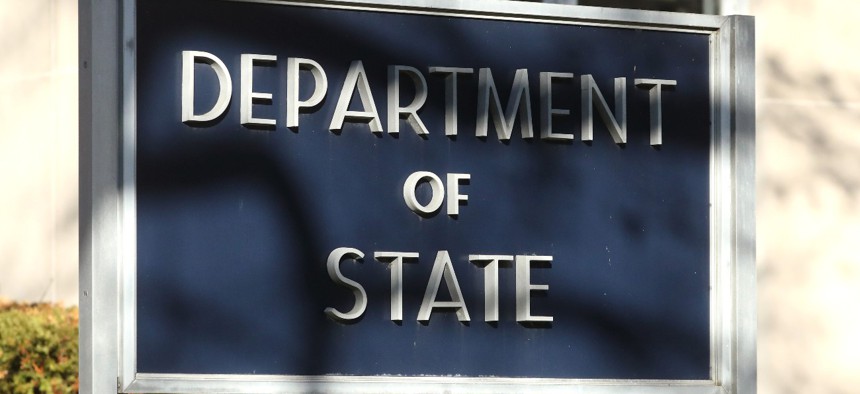
Mark Wilson/Getty Images News
Non-Emergency Federal Employees Ordered to Leave Shanghai
The mandate comes as China contends with a worsening surge of COVID-19 cases.
Non-emergency U.S. government employees and their families in Shanghai have been ordered to depart amid a COVID-19 surge in China.
On April 8, the State Department authorized voluntary departures following China’s worst surge in COVID-19 cases since the virus was discovered over two years ago and the strict lockdowns imposed as part of China’s zero COVID policy. Then on Monday, the department upgraded to an ordered departure due to the changing circumstances.
“U.S. Mission staff will continue to be available 24 hours per day across China to provide emergency services to U.S. citizens,” according to a statement from the State Department. “We have adjusted staffing throughout the mission to respond to the surge in demand for emergency citizen services, including providing supplemental support to Consulate General Shanghai by a team at the U.S. Embassy in Beijing.”
The employees and family members will leave on commercial flights and the ordered departure status will be reviewed every 30 days.
“While we do not comment on the details of staffing adjustments, we continually adjust our staffing posture to respond to changing demands and circumstances,” said the statement.
China’s Ministry of Foreign Affairs condemned the U.S.’s personnel departures.
A travel advisory from the State Department said, “the zero-tolerance approach to COVID-19 by the [People’s Republic of China] and Hong Kong governments severely impacts travel and access to public services.”
U.S. citizens should “reconsider travel to the People’s Republic of China due to arbitrary enforcement of local laws and COVID-19-related restrictions,” the advisory stated. “Do not travel to the PRC’s Hong Kong Special Administrative Region, Jilin province, and Shanghai municipality due to COVID-19-related restrictions, including the risk of parents and children being separated. Reconsider travel to the PRC’s Hong Kong [special administrative region] due to arbitrary enforcement of local laws.”
Government Executive asked the State Department where these non-emergency employees are going and what guidance and/or accommodations it’s giving them so that they can continue their work remotely. A State Department spokesperson on background gave a statement reflecting what the department had already put out, including, “While we do not comment on the details of staffing adjustments, we continually adjust our staffing posture to respond to changing demands and circumstances.”
This article has been updated to include the State Department’s response.







